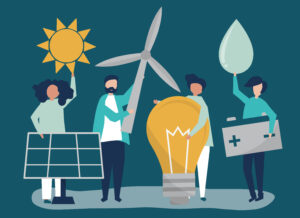
- This project has passed.
Potentialities, opportunities, and risks of the transition to a low-carbon economy in Latin America.
YSI Workshop Latin America Working Group
Start time:
March 19 @ 2:00 pm - 8:00 pm
EDT
Location:
Faculty of Economics Sciences-Universidad Nacional de Colombia. Auditorium 2, Building 310, Bogota, Bogota
Type:
Workshop

Speakers
Fadhel Kaboub
Professor of Economics in Denison University
Camila Gramkow (to be confirmed)
Director a.i. of the UN ECLAC Brazil Office
Local Partners
Description
Within the framework of the global commitments regarding the transition to a low-carbon economy ratified at COP 27 in Dubai, as well as the individual commitments assumed by Latin American countries, different macroeconomic and financial questions have arisen that are presented as urgent and relevant, both for academia and for the governments that lead these nations: How much does this process cost? What are the sources to finance this transformation? How much of the investment for the transition should be assumed by the States and how much by private actors? How to reconcile the institutional framework and fiscal commitments with these objectives? Is it necessary to restructure the public debt of the nations, to open fiscal space for the investments necessary for the transition? Among many others.
Answering these questions is part of the task of planning and implementing the transition to a low-carbon economy, which all actors concerned with or involved in this issue have. A temperature level of 1.5 degrees Celsius will be reached in 2023, surpassing one of the scenarios proposed by the IPCC to be reached only by 2050.
The scientific community has raised different alerts regarding global and local trajectories, as well as the low effectiveness of the policies implemented to meet objectives associated with decarbonization, therefore, many speeches in the framework of COP 27 revolved around the need to accelerate the transition process. However, the capacity of emerging economies, and particularly Latin American economies, the face these challenges, has a complex context, since they are countries with a high level of vulnerability to climate change; At the same time, they face macroeconomic risks in the processes of productive transformation, because their economies depend to a large extent on raw materials such as fossil fuels, mining, and/or agricultural products.
For all the above, it is pertinent to hold a space for regional discussion between academia and economic policymakers regarding the potentialities, opportunities, and risks of the transition to a low-carbon economy in Latin America.
On March 19, it will be held at the National University of Colombia the workshop “Potentialities, opportunities, and risks of the transition to a low-carbon economy in Latin America” and the event will be held at collaboration of the Ministry of Mining and Energy of Colombia. This event aims to be a space for the dissemination and interaction between young researchers, teachers, and heterodox academics from around the world, particularly from Latin America.
The joint workshop would be held in the morning and afternoon hours, with the participation of 2 tutors Camila Gramkow (to be confirmed), and Yanis Dafermos(to be confirmed). There, they would present their views. Followed by several rounds of questions from the audience. In the order of the same ideas, scholars will present their papers and tutors comment on these.
We invited all the researchers interested in these topics to submit and present their papers related but not exclusive to the following issues:
- Opportunities and risks of the transition to low-carbon economies.
- Macroeconomic modelling of the transition to low-carbon economies.
- Transition to low-carbon economies and gender equity.
- Transition to low-carbon economies and structural change.
- International Financial Architecture and Green Finance.
- Fiscal and monetary policy and coordination in the context of the transition to low-carbon economies.
Submission Details:
1.Submission of abstracts (500 words maximum) from January 26th to February 12th, 2022.
2.Submission of accepted papers: until March 5th, 2022.
3.The papers can be written in English or Spanish.
4.The papers must be submitted either in Word or PDF formats and must have the following characteristics: a maximum extension of 8,000-13,000 words.
5.The author’s personal information must be included as a symbol footnote stating the author’s name, occupation, institution, academic level, and his/her e-mail.
6.No more than two (2) papers are allowed per author.